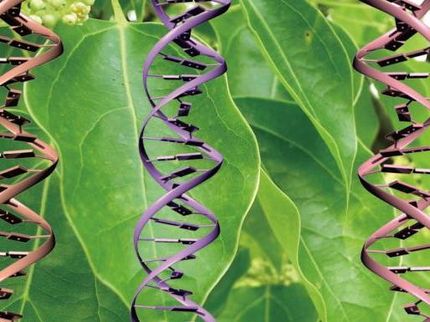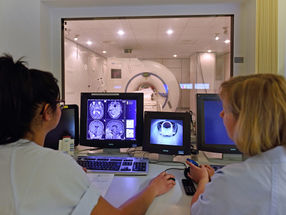Study shows potential for using algae to produce human therapeutic proteins
Advertisement
Pharmaceutical companies could substantially reduce the expense of costly treatments for cancer and other diseases produced from mammalian or bacterial cells by growing these human therapeutic proteins in algae. That's the conclusion of a study, published in plant biotechnology Journal, which sought to determine whether seven diverse human therapeutic proteins could be produced in Chlamydomonas reinhardtii, a green alga used widely in biology laboratories as a genetic model organism, much like the fruit fly Drosophila and the bacterium E. coli.
"What surprised us was that of the seven genes chosen, four expressed proteins at levels sufficient for commercial production," said Stephen Mayfield, a professor of biology at the University of California, San Diego who headed the study, which involved scientists at The Scripps Research Institute, San Diego biofuel company Sapphire Energy and ProtElix, a protein engineering company in Hayward, CA.
The scientists reported in their paper that all of the algal-produced proteins in their study showed biological activity comparable to the same proteins produced by traditional commercial techniques. And because algae cells can be grown cheaply and quickly, doubling in number every 12 hours, they noted that algae could be superior to current biological systems for the production of many human therapeutic proteins.
"Currently, human therapeutic proteins are primarily produced from either bacteria or mammalian cell culture," they said. "Complex mammalian proteins and monoclonal antibodies are primarily produced by the culture of transgeneic mammalian cells, while simpler proteins are generally produced by E. coli."
"Due to high capital and media costs, and the inherent complexity of mammalian cell culture, proteins produced by mammalian cell culture are very expensive," they added. "Bacterial production is generally more economical in terms of media components, but bacteria are often inefficient at producing properly folded complex proteins, requiring a denaturation and renaturation step that adds significant costs to bacterial protein production." The scientists said the percentage of human proteins produced in their algal cultures that were properly folded in three dimensions was comparable to the fraction produced by mammalian cell cultures and much better than that produced by bacterial systems. And because algae generate their energy from sunlight and have relatively simple nutrient needs, they said the costs for using them at large scale to commercially produce human proteins should be much lower than for mammalian cell culture, which require expensive fermentation facilities.
Other news from the department science
Most read news
More news from our other portals
See the theme worlds for related content
Topic world Antibodies
Antibodies are specialized molecules of our immune system that can specifically recognize and neutralize pathogens or foreign substances. Antibody research in biotech and pharma has recognized this natural defense potential and is working intensively to make it therapeutically useful. From monoclonal antibodies used against cancer or autoimmune diseases to antibody-drug conjugates that specifically transport drugs to disease cells - the possibilities are enormous

Topic world Antibodies
Antibodies are specialized molecules of our immune system that can specifically recognize and neutralize pathogens or foreign substances. Antibody research in biotech and pharma has recognized this natural defense potential and is working intensively to make it therapeutically useful. From monoclonal antibodies used against cancer or autoimmune diseases to antibody-drug conjugates that specifically transport drugs to disease cells - the possibilities are enormous


























































